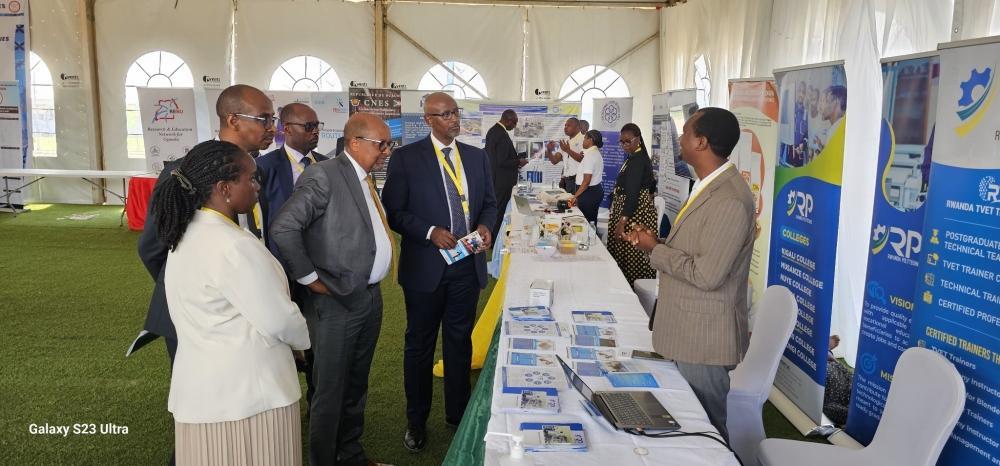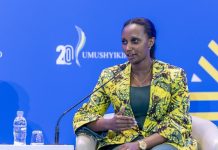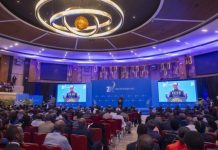Africa-Press – Rwanda. The Director General of Rwanda’s Higher Education Council (HEC) has called on East African countries to align policies with legal instruments and adopt emerging technologies to strengthen curriculum development.
Edward Kadozi was speaking in Kampala, Uganda, during the First Ministerial Conference on the East African Community (EAC) Common Higher Education Area, held under the theme “Enhancing Regional Integration through Harmonised Higher Education Systems for Sustainable Development in East Africa”.
The conference, opened on September 9 by the President of Uganda, Yoweri Kaguta Museveni, brought together Ministers of Education and stakeholders in the education sector.
“It would be helpful to know that most of the legal instruments drive implementation of the policies. When it does the contrary, then we have these issues we are seeing across. Laws should help us to implement the policies,” Kadozi said.
He cited Rwanda’s curriculum development, which is informed by education policy and supported by laws that manage interests from professional bodies and the private sector.
“We do have the Rwanda Qualification Framework. That has been developed with inputs from the private sector, the professional bodies, from ICA policy and legal instruments that have been developed there. Our experts and those who have been involved in developing our Qualification Framework had to draw insights from these regional and international frameworks,” he said.
Kadozi noted that benchmarking plays a key role in curriculum development but must be adapted to local contexts. “Benchmarking doesn’t mean copying and pasting. We have to see how we manage that while taking into consideration our countries’ context.”
He stressed the importance of harmonising admission standards, learning outcomes and the involvement of professional bodies.
“Professional bodies are critical in terms of helping academic institutions also signal the demands of the market. The demands of the market are changing, locally and regionally, and the only way to integrate that is bringing on professional bodies,” Kadozi said.
On the role of technology, he said: “Technologies are emerging, and they are influencing the way we design our education policies, programmes, and how we are delivering, including research. And this is very important in determining the quality of education we deliver. Virtual learning, education of AI, and others are very important. We need to look at it.”
The conference advances the EAC vision of a Common Higher Education Area, endorsed by Heads of State in 2017, which seeks to harmonize higher education programs, policies, and systems in the region to foster academic recognition, student and professional mobility, and regional integration.
The conference, running September 11, will deliberate on harmonization of academic policies and programmes, quality assurance, curriculum benchmarking, and talent mobility within the region.
It is expected to conclude with a Joint Communique of the Ministers of Education in the EAC region on how to fast-track implementation and coordination of the Common Higher Education Area for Sustainable Development of East Africa.
For More News And Analysis About Rwanda Follow Africa-Press






